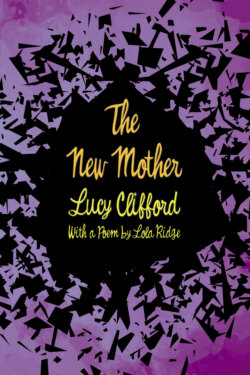Читать книгу The New Mother - Lucy Clifford - Страница 8
На сайте Литреса книга снята с продажи.
THE NEW MOTHER I
ОглавлениеThe children were always called Blue-Eyes and the Turkey, and they came by the names in this manner. The elder one was like her dear father who was far away at sea, and when the mother looked up she would often say, “Child, you have taken the pattern of your father’s eyes,” for the father had the bluest of Blue-Eyes, and so gradually his little girl came to be called after them. The younger one had once, while she was still almost a baby, cried bitterly because a turkey that lived near to the cottage, and sometimes wandered into the forest, suddenly vanished in the middle of the winter; and to console her she had been called by its name.
Now the mother and Blue-Eyes and the Turkey and the baby all lived in a lonely cottage on the edge of the forest. The forest was so near that the garden at the back seemed a part of it, and the tall fir-trees were so close that their big black arms stretched over the little thatched roof, and when the moon shone upon them their tangled shadows were all over the white-washed walls.
It was a long way to the village, nearly a mile and a half, and the mother had to work hard and had not time to go often herself to see if there was a letter at the post-office from the dear father, and so very often in the afternoon she used to send the two children. They were very proud of being able to go alone, and often ran half the way to the post office. When they came back tired with the long walk, there would be the mother waiting and watching for them, and the tea would be ready, and the baby crowing with delight; and if by any chance there was a letter from the sea, then they were happy indeed. The cottage room was so cosy: the walls were as white as snow inside as well as out, and against them hung the cake-tin and the baking dish, and the lid of a large saucepan that had been worn out long before the children could remember, and the fish-slice, all polished and shining as bright as silver. On one side of the fireplace, above the bellows hung the almanac, and on the other the clock that always struck the wrong hour and was always running down too soon, but it was a good clock, with a little picture on its face and sometimes ticked away for nearly a week without stopping. The baby’s high chair stood in one corner, and in another there was a cupboard hung up high against the wall, in which the mother kept all manner of little surprises. The children often wondered how the things that came out of that cupboard had got into it, for they seldom saw them put there.
“Dear children,” the mother said one afternoon late in the autumn, “it is very chilly for you to go to the village, but you must walk quickly, and who knows but what you may bring back a letter saying that dear father is already on his way to England.” Then Blue-Eyes and the Turkey made haste and were soon ready to go. “Don’t be long,” the mother said, as she always did before they started. “Go the nearest way and don’t look at any strangers you meet, and be sure you do not talk with them.”
“No, mother,” they answered; and then she kissed them and called them dear good children, and they joyfully started on their way.
The village was gayer than usual, for there had been a fair the day before, and the people who had made merry still hung about the street as if reluctant to own that their holiday was over.
“I wish we had come yesterday,” Blue-Eyes said to the Turkey; “then we might have seen something.”
“Look there,” said the Turkey, and she pointed to a stall covered with gingerbread; but the children had no money. At the end of the street, close to the Blue Lion where the coaches stopped, an old man sat on the ground with his back resting against the wall of a house, and by him, with smart collars round their necks, were two dogs. Evidently they were dancing dogs, the children thought, and longed to see them perform, but they seemed as tired as their master, and sat quite still beside him, looking as if they had not even a single wag left in their tails.
“Oh, I do wish we had been here yesterday,” Blue-Eyes said again as they went on to the grocer’s, which was also the post-office. The post-mistress was very busy weighing out half-pounds of coffee, and when she had time to attend to the children she only just said “No letter for you to-day,” and went on with what she was doing.
